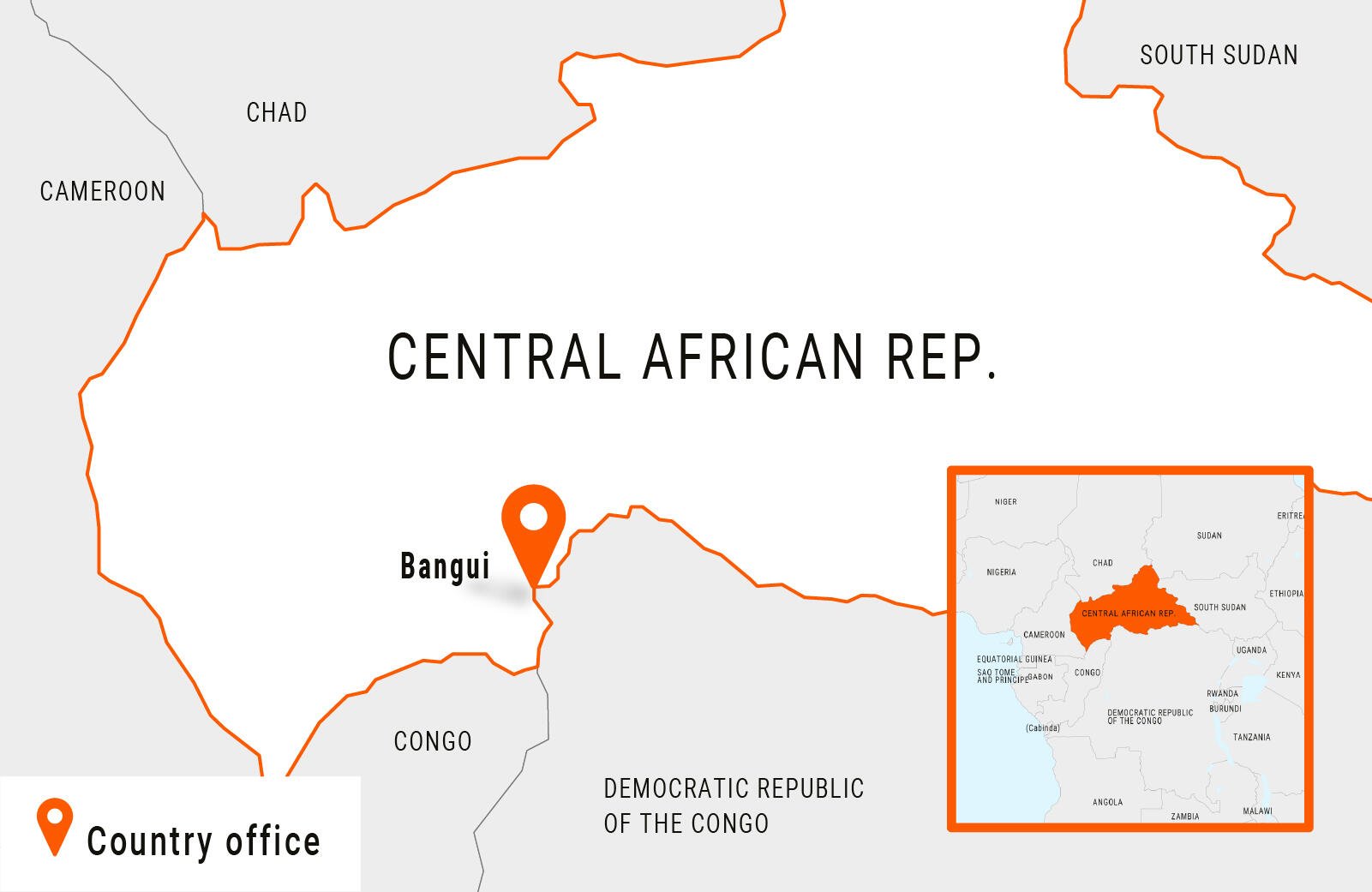CAR is one of the most dangerous places for aid organisations to work. Yet despite the risks, the Norwegian Refugee Council (NRC) is there – providing vital humanitarian assistance, advocating for the protection and rights of conflict-affected people, and focusing on the most hard-to-reach areas of the country, where few other organisations operate.
What’s happening in the Central African Republic?
CAR has faced prolonged instability due to years of political, security and humanitarian crises. In 2025, 2.4 million people (38 per cent of the population) are extremely vulnerable – beyond the scope of humanitarian aid.
Many displaced people have crossed the border into neighbouring countries like Cameroon, Chad and the Democratic Republic of the Congo. In fact, it’s believed that one in five Central Africans is either displaced or living in exile at the present moment.
Often, these families are extremely vulnerable, lacking adequate food, shelter and livelihood opportunities. Infrastructure in CAR is poor, health services are sparse and almost half the population need humanitarian assistance.

Region: Central Africa
Population: 5.9 million
Total displaced: 1.2 million
Refugees hosted: 65,419
CAR is one of the most dangerous places for aid organisations to work. Yet despite the risks, the Norwegian Refugee Council (NRC) is there – providing vital humanitarian assistance, advocating for the protection and rights of conflict-affected people, and focusing on the most hard-to-reach areas of the country, where few other organisations operate.
What’s happening in the Central African Republic?
CAR has faced prolonged instability due to years of political, security and humanitarian crises. In 2025, 2.4 million people (38 per cent of the population) are extremely vulnerable – beyond the scope of humanitarian aid.
Many displaced people have crossed the border into neighbouring countries like Cameroon, Chad and the Democratic Republic of the Congo. In fact, it’s believed that one in five Central Africans is either displaced or living in exile at the present moment.
Often, these families are extremely vulnerable, lacking adequate food, shelter and livelihood opportunities. Infrastructure in CAR is poor, health services are sparse and almost half the population need humanitarian assistance.
Our response
We’re working with our partners in the following areas:
- Education – constructing and rebuilding schools to provide a safe learning environment, providing alternative education programmes for out-of-school children, training teachers and revitalising school management committees, and equipping young people with vital vocational skills.
- Water, sanitation and hygiene – constructing, renovating and treating water points and latrines, drilling new boreholes to increase access to safe water, and promoting good hygiene practices.
- Information, counselling and legal assistance – helping people obtain legal documentation, assisting with housing, land and property rights, and supporting conflict resolution between communities.
- Livelihoods and food security – providing food and essential household items, distributing seeds and tools, and training people in new agricultural techniques to improve yields, as well as supporting Village Savings and Loan Association initiatives to improve self-sufficiency.
- Shelter and settlements – providing emergency shelter kits, constructing and repairing more permanent homes, and rebuilding community infrastructure, including schools.
- Protection from violence – helping families stay safe from violence, providing dedicated support for people through individual protection assistance, aiding dialogue and mediation processes, and supporting coordination and advocacy efforts by co-facilitating the protection cluster.
Our operations
NRC office established: 2014
Areas of operation: Bangui (country office), Nana-Gribizi, Ombella-Mpoko, Mambere-Kadei, Nana Mambere, Sangha-Mbaéré, Basse-Kotto, Ouham Pende, Ouham Fafa, Kemo
Country Director: Alain Cavenaile
Contact: alain.cavenaile@nrc.no

Our impact
In 2023, we assisted 112,908 people through our programmes in the Central African Republic:
-
45,581Education
-
4,188Livelihoods and food security
-
8,929Shelter and settlements
-
5,339Protection from violence
-
25,334Information, counselling and legal assistance
-
44,713Water, sanitation and hygiene
-
3,949other NRC activities
Note: some people received more than one type of assistance.








